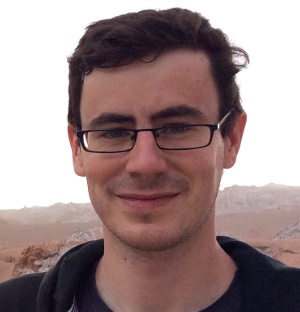Invited Talk by Prof. Aidan Hogan: Knowledge Graphs and Large Language Models
We are delighted to announce an invited talk on the topic of “Knowledge Graph and Large Language Models” by Prof Aidan Hogan. The talk will take place on September 18th from 16:00 to 17:00 at JOSEPHS Augustinerhof (Augustinerstraße 19, 90403 Nürnberg).
Prof. Aidan Hogan is an associate Professor at the Department of Computer Science, University of Chile, and an Associate Researcher at the Millennium Institute for Foundational Research on Data (IMFD). His research interests relate primarily to the Semantic Web, Graph Databases, Information Extraction and Reasoning; he has published over one hundred peer-reviewed works on these topics. He is an Editor-in-Chief and Co-Founder of the upcoming journal Transactions on Graph Data & Knowledge (TGDK). He is the author of three books, the latest of which, “Knowledge Graphs”, is available online.
Here is the abstract of his talk:
The public release of ChatGPT in November 2022 has led to the widespread popularisation and discussion of Large Language Models. Their fame (or infamy) is in large part due to the fact that not only do they encode a vast volume of information, they can also mimic our human language in unprecedented ways. These models thus call into question a fundamental tenet of Data Management: that in order to address non-trivial information needs, the first step is to explicitly structure data in order to lift them from the ambiguous swamp of our human language. This talk will address a pressing question that arises in this context: do we still need Knowledge Graphs in the age of Large Language Models? We will look at the current capabilities and limitations of Large Language Models, and contrast them with those of Knowledge Graphs. We will cover aspects relating to usability, explainability, provenance, resoluteness, mutability, timeliness, comprehensiveness, utility, expressiveness, cost and truth. Ultimately we will propose that in many ways, Large Language Models and Knowledge Graphs can be considered complementary, with interleaving strengths and weaknesses. More specifically, we will argue that Large Language Models can help bring the power of Knowledge Graphs to the masses, and the power of the masses to Knowledge Graphs.
If you are interested in the topic, we kindly ask you to sign up here with your name and email address.
The video recording of the talk can be found here. The slides can be found here.
